Viola Davis: 'In my world, there are a lot of Ma Raineys'
- Published
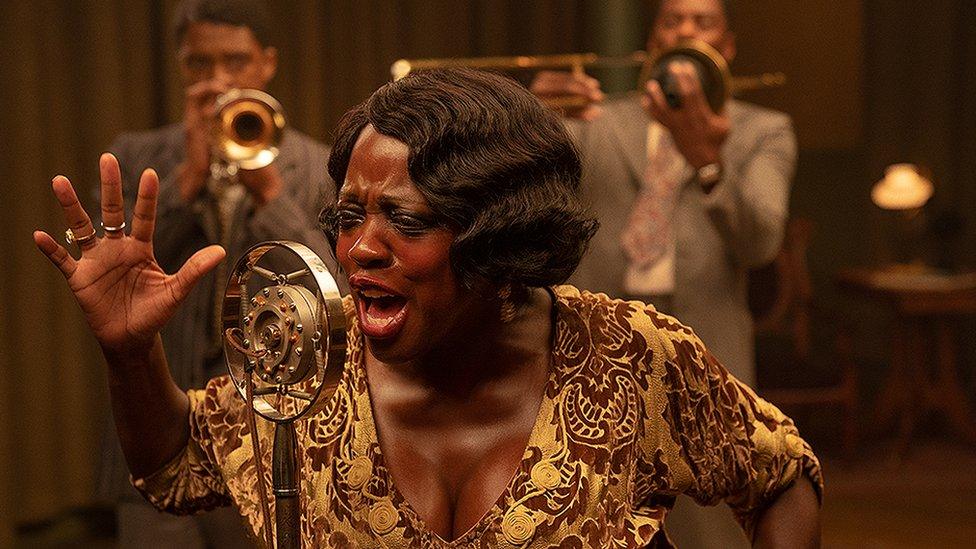
"We're so used to seeing black characters defined by white people," Viola Davis tells Radio 1 Newsbeat.
"And when they're defined by white people, their voice gets taken away, their sexuality gets taken away.
"They are defined in the image of - take what I'm about to say with a grain of salt - but I'm gonna say it, they are defined in the mind-set of the oppressor."
She's chatting on a Zoom call with a group of mostly white, European journalists about her new movie, Ma Rainey's Black Bottom.
It's an adaptation of a 1982 August Wilson play about the blues singer Ma Rainey, set in a recording studio on a hot summer day in 1920s Chicago.
Allow YouTube content?
This article contains content provided by Google YouTube. We ask for your permission before anything is loaded, as they may be using cookies and other technologies. You may want to read Google’s cookie policy, external and privacy policy, external before accepting. To view this content choose ‘accept and continue’.
Viola plays the lead role, and in gold teeth, a body-suit and heavy make-up, is a million miles from roles like Annalise Keating in How To Get Away With Murder, which she's probably best known for.
'There are a lot of Ma Raineys'
"When you find a woman like Ma Rainey - she's big, she is bisexual, she's dark skinned. She's all those things," Viola continues.
"Usually a character like that is just funny, she's just big, black and funny. That's it. That, or she's uber maternal."
But while this might be how cinema and TV portray black women, that's certainly not Viola's experience.
"In my world, within the African American community, there are a lot of Ma Raineys," she says.
"There are a lot of people, my mom, my husband's mother, his grandmother was always cussing people out, letting their breasts hang out.
"We're always outspoken, but it's only in the context of white people that we become invisible that we turn into something else.
"When in reality, all I know are Ma Raineys. My mom was a Ma Rainey. My mom would take her wig off, throw it in the dirt and kick somebody's ass if they were messing with her kids."
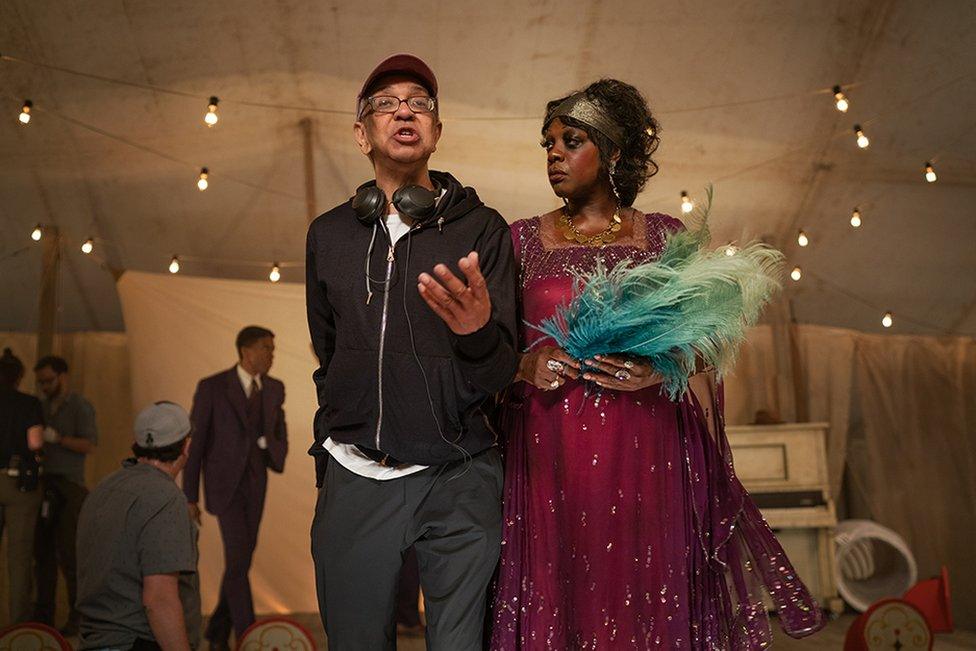
'She really does believe that she's worth something,' says Viola
Ma Rainey's not funny and she's not maternal. She barely wants to spend an afternoon in the recording studio. The people who want a record made are the two producers - both white men.
And it's from this that the movie's conflict emerges - before escalating to a truly shocking and powerful final act.
"You have a character like Ma Rainey, who has an extraordinary sense of her own power, and she comes into contact with a system who fundamentally has no interest in her power," says director George C Wolfe.
"All of those dynamics are still at play. In terms of the artists/management equation, but also in the United States, in terms of black artists and white power structures that are in the position to control what gets seen and what is not seen."
"The United States has, and continues to have, a very complicated relationship with who belongs where."
'We're all fighting for our value'
But while Ma Rainey is what George describes as, a "brilliant chess master" in this simmering confrontation, there are plenty of pawns at play here too.
It's a game Ma plays with ease, from the moment she arrives late to the studio and makes her requests (first a fan, later a Coca-Cola), only to be countered by the producers even at these seemingly minor wants.
"At the centre of all of August Wilson's narratives, because of the African American experience, we are all fighting for our value," says Viola.
"All of us are fighting for our value because we don't have any and it stays a chess game until it becomes a boxing match."
Also in the room (and on the board) are Ma's three musicians - Cutler, Toledo and Slow Drag, her stuttering nephew Sylvester, flirtatious girlfriend Dussie Mae and ambitious change-maker Levee, played by Chadwick Boseman.
This is the last film the Black Panther star made before his death from cancer earlier this year.
Viola Davis, who stars in Ma Rainey's Black Bottom, says Chadwick Boseman was an 'artist'
George describes Chadwick as "a monumental talent and egoless human being" and says working with him on Ma Rainey's Black Bottom was "a true, true blessing".
"I would watch him in this process of peeling away who Chadwick was as he was digging for Levee and every single day, you just saw Levee begin to emerge, and Chadwick starting to make room for Levee to fully emerge."
Like Ma, Levee is a force for change in the movie, wanting her to perform more modern versions of her tunes in the studio and pushing the producers for a chance to record his own music.
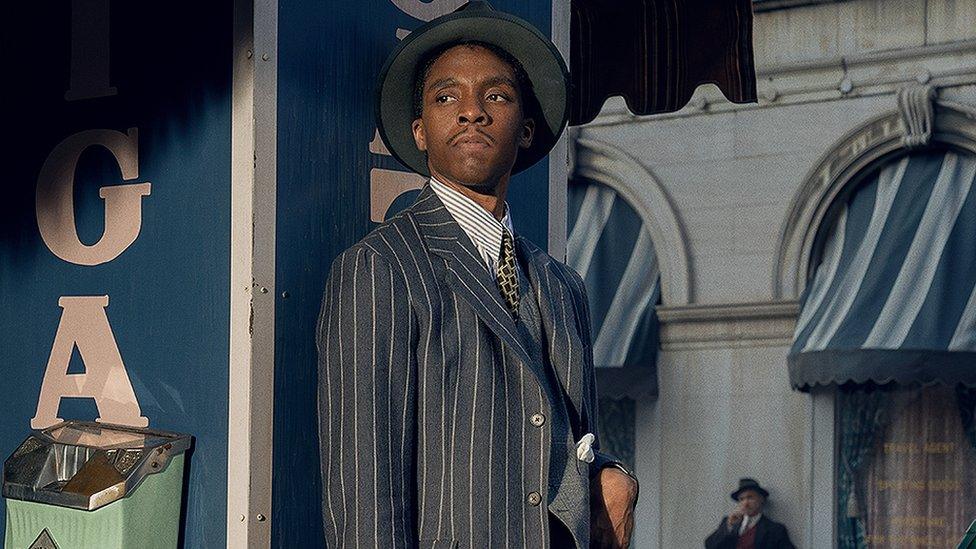
Chadwick died in August 2020
Ma Rainey's Black Bottom is on Netflix and in some cinemas from Friday and as well as powerful performances from Chadwick and Viola, it will be an introduction for many viewers to a truly memorable (and real life) icon in Ma Rainey.
"This is a woman who would be at orgies on Thursdays, she was literally at orgies where she would be arrested, and on Sunday she would be at church," says Viola.
"On one hand she would tell her band members: 'Don't cuss - I don't want you cussing, I don't want you drinking, I don't want you smoking.'
"But at the same time she'd to go to a bar and beat up a 200-pound man."
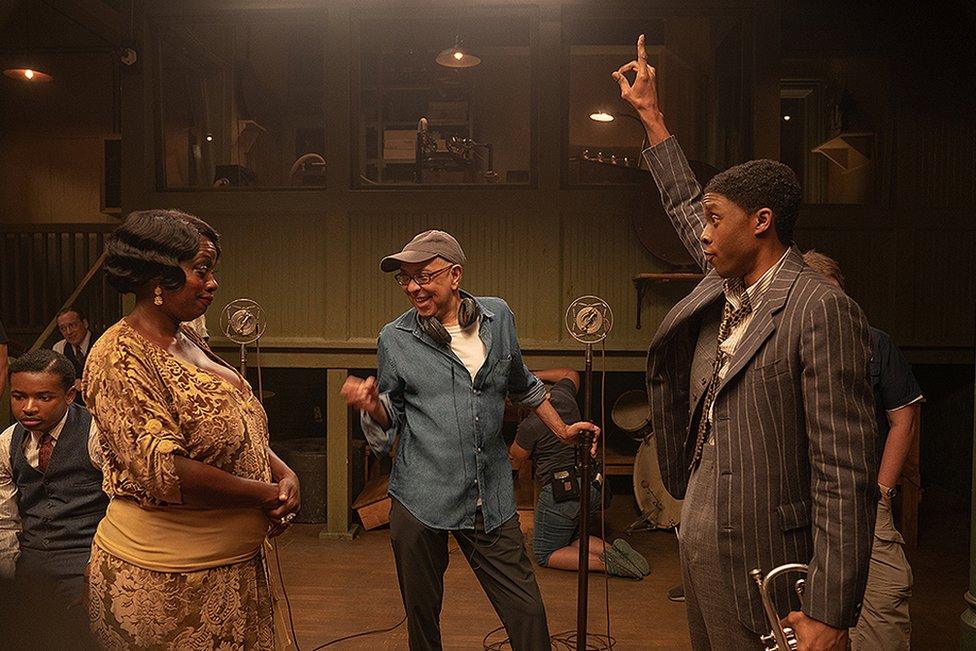
'It was a joy working with Viola because she is so smart, and she is so present,' says George
She says, for an actor, there's a different responsibility when playing a real person - and what she's learned playing Ma is something she'll take into her next role too.
"The only thing that's a little bit more comfortable about Ma Rainey is not a lot of people know her," she says.
"Now the next character I'm playing is Michelle Obama. That's really frightening. Now, that's scary. I don't know why I decided to do that."


Follow Newsbeat on Instagram, external, Facebook, external, Twitter, external and YouTube, external.
Listen to Newsbeat live at 12:45 and 17:45 weekdays - or listen back here.
Related topics
- Published29 August 2020
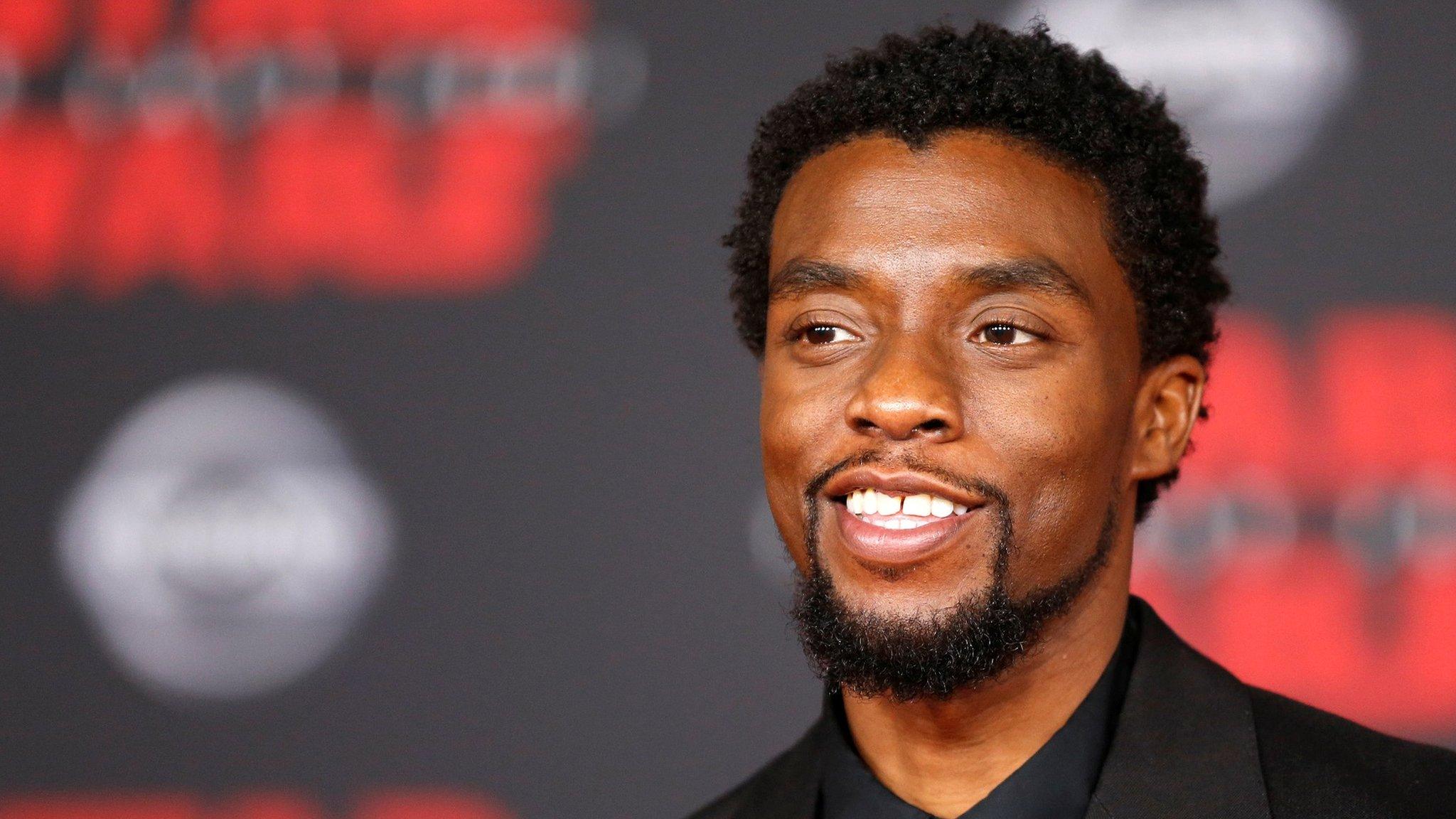
- Published11 December 2020
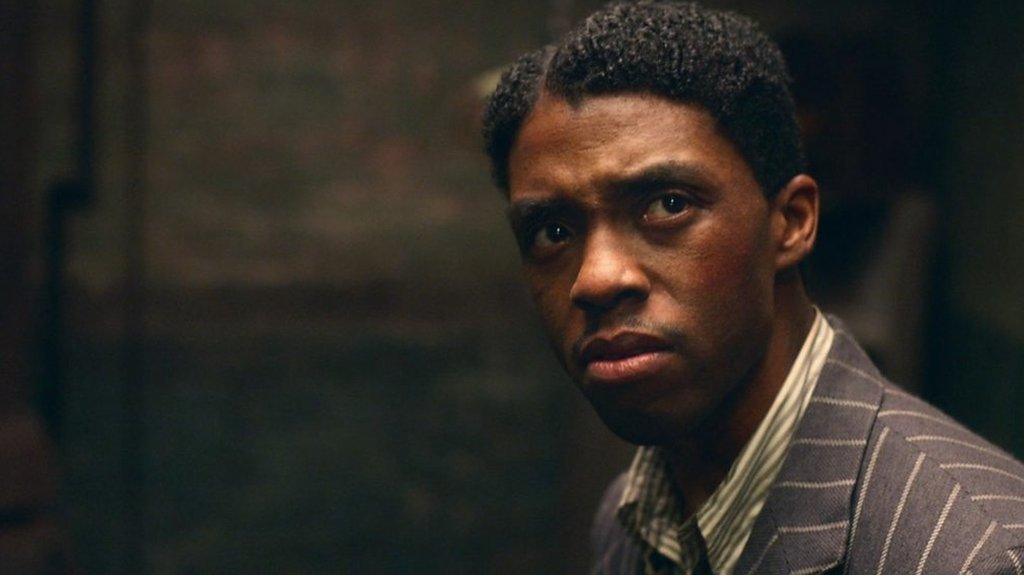
- Published21 November 2020